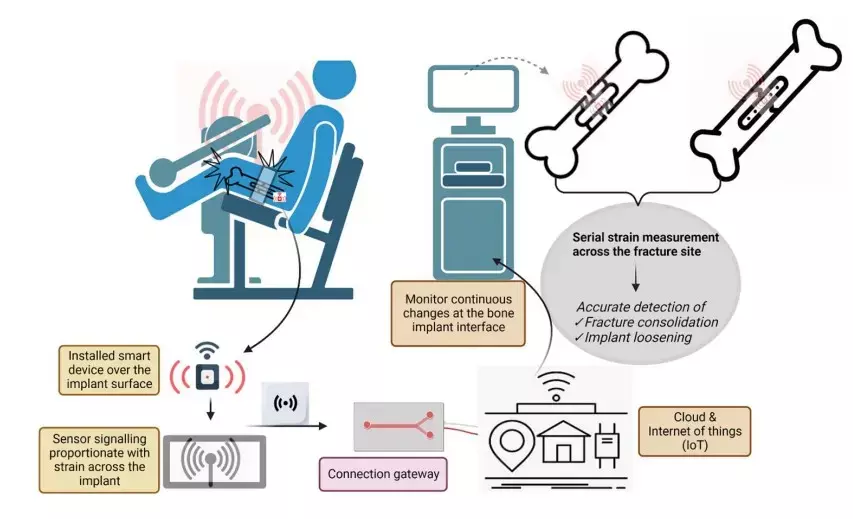- Home
- Medical news & Guidelines
- Anesthesiology
- Cardiology and CTVS
- Critical Care
- Dentistry
- Dermatology
- Diabetes and Endocrinology
- ENT
- Gastroenterology
- Medicine
- Nephrology
- Neurology
- Obstretics-Gynaecology
- Oncology
- Ophthalmology
- Orthopaedics
- Pediatrics-Neonatology
- Psychiatry
- Pulmonology
- Radiology
- Surgery
- Urology
- Laboratory Medicine
- Diet
- Nursing
- Paramedical
- Physiotherapy
- Health news
- Fact Check
- Bone Health Fact Check
- Brain Health Fact Check
- Cancer Related Fact Check
- Child Care Fact Check
- Dental and oral health fact check
- Diabetes and metabolic health fact check
- Diet and Nutrition Fact Check
- Eye and ENT Care Fact Check
- Fitness fact check
- Gut health fact check
- Heart health fact check
- Kidney health fact check
- Medical education fact check
- Men's health fact check
- Respiratory fact check
- Skin and hair care fact check
- Vaccine and Immunization fact check
- Women's health fact check
- AYUSH
- State News
- Andaman and Nicobar Islands
- Andhra Pradesh
- Arunachal Pradesh
- Assam
- Bihar
- Chandigarh
- Chattisgarh
- Dadra and Nagar Haveli
- Daman and Diu
- Delhi
- Goa
- Gujarat
- Haryana
- Himachal Pradesh
- Jammu & Kashmir
- Jharkhand
- Karnataka
- Kerala
- Ladakh
- Lakshadweep
- Madhya Pradesh
- Maharashtra
- Manipur
- Meghalaya
- Mizoram
- Nagaland
- Odisha
- Puducherry
- Punjab
- Rajasthan
- Sikkim
- Tamil Nadu
- Telangana
- Tripura
- Uttar Pradesh
- Uttrakhand
- West Bengal
- Medical Education
- Industry
SMART sensor technology may herald new era in field of orthopaedic trauma

SMART sensor technology may provide the solution to bridge the gap between the current radiographic determination of fracture healing and clinical assessment. The displacement and rigidity between the fracture ends can be accurately measured using strain gauges. Progressively increasing stiffness is a sign of fracture consolidation which can be monitored using sensors. The design of standard orthopaedic implants can remain the same and needs no major modifications as the sensor can be mounted onto the implant without occupying much space. Data regarding various fracture morphologies and their strain levels throughout the fracture healing process may help develop AI algorithms that can subsequently be used to optimise implant design/materials.
Madhan Jeyaraman et al conducted a literature search in PubMed, PubMed Central, Scopus, and Web of Science databases for reviewing and evaluating the published scientific data regarding sensor technology in fracture healing.
SMART sensor technology comes with a variety of uses such as determining fracture healing progress, predicting early implant failure, and determining fractures liable for non-union to exemplify a few.
Immediately after fracture fixation using an implant, the load across the fracture site is taken up by the implant. However, as fracture healing progresses, the fracture callus gradually takes up the load, which reduces the strain transmitted across the implant. Hence, serial strain measurement across the fracture site after surgery can serve as a guide to fracture healing. This is the principle of the SMART sensor used in fracture healing and quantified fracture stiffness has been shown to demonstrate fracture healing up to 2.5 weeks before radiographic evidence.
Conventional imaging modalities such as radiographs, CAT scans, bone scans and MRIs remain extremely subjective and are unable to monitor continuous changes at the bone–implant interface. To overcome these shortcomings, multiple sensors based on various strategies, such as inertial sensors (accelerometers and piezo-electric), ultrasonic sensors, inductive proximity sensing sensors, piezo-foating gate sensing and capacitive sensing, and the recently developed cosurface capacitive technology have been designed to offer accurate detection of bone healing progress and early implant loosening.
The main limitations are that it is still in its inception and needs extensive refinement before it becomes widely and routinely used in clinical practice. Nevertheless, with continuous advances in microprocessor technology, research designs, and additive manufacturing, the utilisation and application of SMART implants in the field of trauma and orthopaedic surgery are constantly growing.
The authors’ commented - “Mass production of such SMART implants will reduce overall production costs and see its use in routine clinical practice in the future and is likely to make a significant contribution in the next industrial revolution termed ‘Industry 5.0’ which aims at personalised patient-specific implants and devices.”
The authors concluded that – “SMART sensor technology may herald a new era in the field of orthopaedic trauma. With the potential to determine fracture healing rates and pre-mature implant failure accurately, it may serve as a feasible guide for orthopaedic surgeons thereby optimising patient care in the coming future.”
Further reading:
Sensor Technology in Fracture Healing
Madhan Jeyaraman, Tarun Jayakumar et al
Indian Journal of Orthopaedics (2023) 57:1196–1202
https://doi.org/10.1007/s43465-023-00933-3
MBBS, Dip. Ortho, DNB ortho, MNAMS
Dr Supreeth D R (MBBS, Dip. Ortho, DNB ortho, MNAMS) is a practicing orthopedician with interest in medical research and publishing articles. He completed MBBS from mysore medical college, dip ortho from Trivandrum medical college and sec. DNB from Manipal Hospital, Bengaluru. He has expirence of 7years in the field of orthopedics. He has presented scientific papers & posters in various state, national and international conferences. His interest in writing articles lead the way to join medical dialogues. He can be contacted at editorial@medicaldialogues.in.
Dr Kamal Kant Kohli-MBBS, DTCD- a chest specialist with more than 30 years of practice and a flair for writing clinical articles, Dr Kamal Kant Kohli joined Medical Dialogues as a Chief Editor of Medical News. Besides writing articles, as an editor, he proofreads and verifies all the medical content published on Medical Dialogues including those coming from journals, studies,medical conferences,guidelines etc. Email: drkohli@medicaldialogues.in. Contact no. 011-43720751


